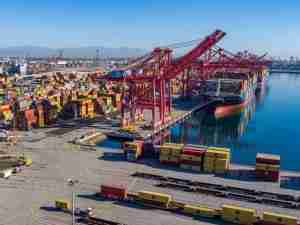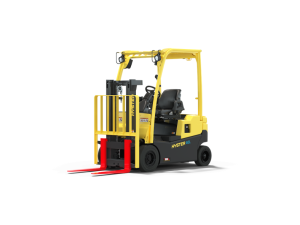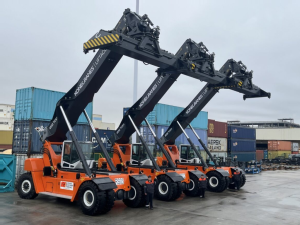Despite the marked progress, Steinke said that the Port is “facing criticism from one of the nation’s largest environmental groups, the Natural Resources Defense Council (NRDC), which says we’re abandoning our environmental goals.” Such criticism is “simply false,” said Steinke.
The Port official explained that cleaner air remains the top priority at the Port and they are determined to proceed in a way that does not compromise the trucking industry’s ability to move cargo. “The NRDC’s real objection to the Clean Trucks Program has nothing to do with clean air,” said Steinke. “By aligning itself with the Teamsters, who have been very public about their campaign to unionize port truckers nationwide, the NRDC is pursuing an agenda beyond air quality.”
Despite pressure from the Teamsters and their cronies, the Port of Long Beach agreed to allow both employee drivers and owner-operators at the Port as part of their settlement with ATA. Under Long Beach’s plan, both larger firms and small business owners have the right to operate at the Port.
“We can accept differences of opinion on that issue – but we won’t accept the NRDC’s false criticism that the ATA settlement is somehow compromising our environmental goals,” said Steinke. He pointed out that not only is the Clean Trucks Program working, but it’s nearly two years ahead of schedule in reducing truck air pollution by 80 percent. Steinke added that the NRDC acknowledged this progress less than a month ago in a news release lauding the program.
“The new system, agreed to by the ATA in the settlement, simplifies and streamlines our already successful Clean Trucks Program. It requires trucking companies to submit the same detailed information and…comply with all environmental, safety and security requirements in order to obtain access to Port terminals, Steinke said. “Under the new registration system, trucking firms still will be required to register their trucks and equip them with electronic devices so we can verify that only clean trucks that meet our tough standards are entering our shipping terminals.” (ATA)









